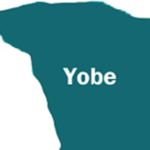One among the numerous introduced is the Bus Rapid Transit (BRT). Prior to introduction of BRT to the public in 2007, the state government, through the Ministry of Transportation, gathered investors for its new transport system called City Bus programmed to replace the popular yellow-painted buses, popularly called ‘Molue.’
In Lagos, last days of the Molue
The City Bus system is fashioned after what obtains in the Western countries. Victoria Island and Ikoyi were chosen as kick-off areas for the vision and the residents of the area pledged support for the government to help change the face of the area. The residents were happy, as they were in dire need of more buses to ply the routes and they were fed up with ill-mannered drivers of commercial buses and their conductors.
The state government believes that making use of Victoria-Island and Ikoyi as the take-off points was a decision well-taken. The area boasts of accommodating the elite of Lagos society. However, on October 1st, 2003, when the shuttle buses promised by the state government were supposed to commence operation, few hitches were recorded. There was insufficient number of buses, as against the 200 promised earlier. The buses put on the road then charged N50 instead of the N30 fare maintained y the commercial buses.
But the commercial bus operators in and around Victoria-Island and Ikoyi refused to leave the road for the government buses. Confusion set in. But commuters suffered most because while agents of the state government succeeded in forcing commercial bus operators off the road, government and the new investors failed to come up with the required number of buses and the transport fare almost doubled.
So the state government returned to the drawing board and come up with the idea of the popular BRT. The system operates on the concept of utilizing dedicated lanes in areas where competition with highway traffic would be greatest while it makes use of existing highways and roads in areas that are less congested in order to reduce cost.
The BRT operation in Lagos commenced on the 17th March, 2008 and has so far lifted over 52 million passengers according to the Special Adviser to Governor Babatunde Fashola, Mr. Kayode Opeifa. He said its bus fleet has increased to 170 buses two months later and presently boasts of over 200 buses in its fleet.
The Managing Director of LAGBUS, Mr. Tunde Disu told Weekend Magazine that the LAGBUS as the largest intrastate operator in West Africa sub-region. He said the outfit is a Public Private Partnership (PPP) initiative conceived by the state government to further increase private sector participation in provision of comfortable and affordable transportation for the special needs of the state.
Today, one hardly sees Molue buses conveying people from one place to another. Except for places like Lagos-Abeokuta Expressway, Old Agege Motor-Road and Mile 2 axis, Molue is going out of existence in Lagos. Where they exist, members of the public appear not interested in riding in them because, according to Mr. Odulana Taiwo, BRT/LAGBUS is what is in vogue. “Lagosians are no more interested in Molue buses as means of transport. You don’t even see them again like before. Their drivers are ill-mannered, their conductors are very rude and all sorts of things exist in the Molue,” he said.
However, Mr. Gabriel Onoh, a Molue driver, told Weekend Magazine: “The state government ought to have allowed all vehicles with relevant documents to compete with the BRT/LAGBUS to keep passengers from getting stranded on the road at peak hours. Some of us have been driven to labour market since introduction of the BRT. Now, it’s like we are been chased out of the road because state agents in charge of vehicle renewal does not interested in renewing Molue particulars. Some among owners of Molue buses have converted their vehicles for other purposes.”
Olaleye Ayinde, another Molue driver on Lagos-Abeokuta Expressway, said: “Today, we wasted much time at the bus stop looking for passenger. Before now, we come out and between 10 and 20 minutes, we get a full load but now we spend a minimum of one hour. It’s too bad, we have our families to take care of and government is not thinking along this line.” But going by the various road expansion projects of the state government, it could be concluded that in the not-too-distant future, services of the popular Molue bus will be a thing of the past in Lagos.
 Join Daily Trust WhatsApp Community For Quick Access To News and Happenings Around You.
Join Daily Trust WhatsApp Community For Quick Access To News and Happenings Around You.


